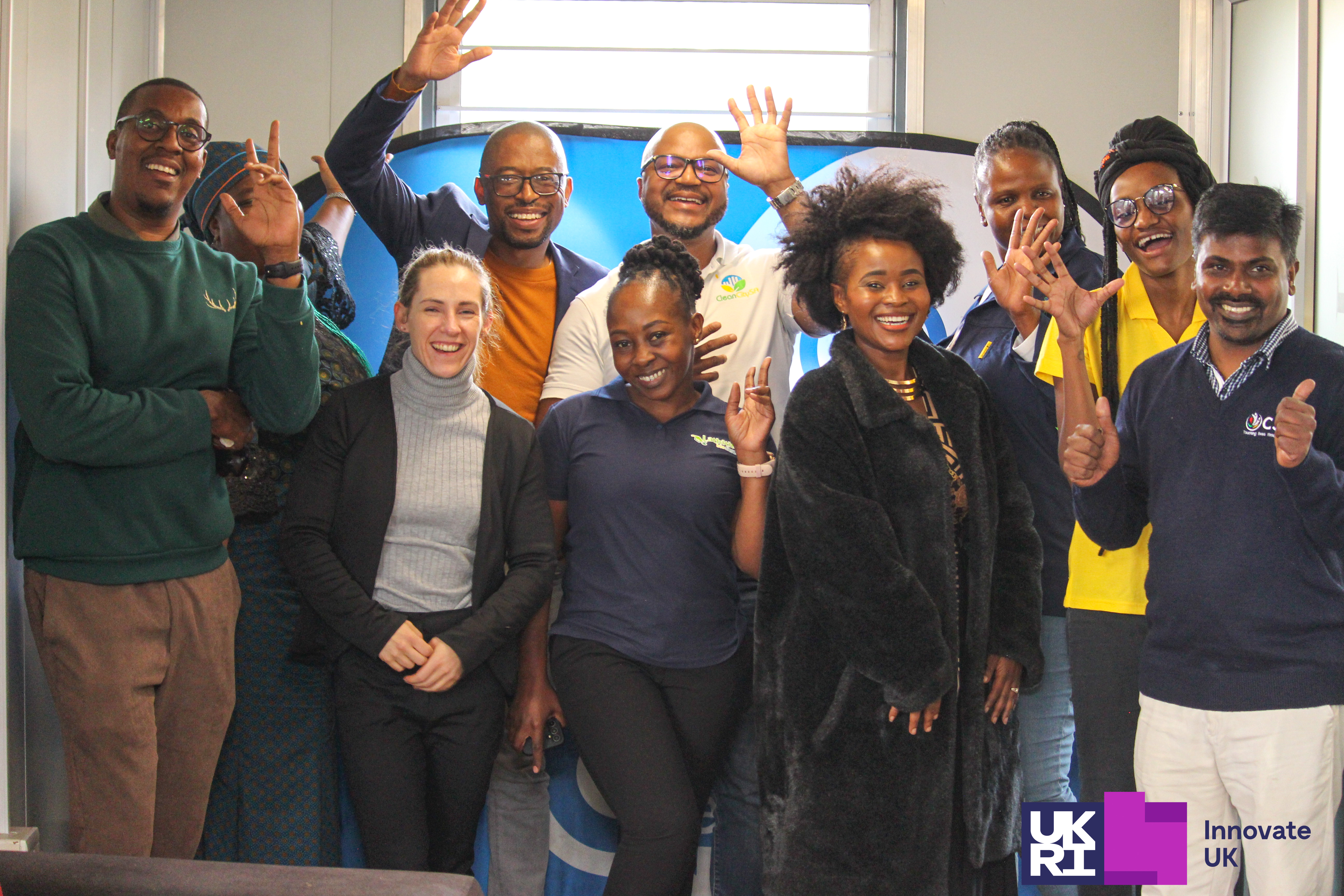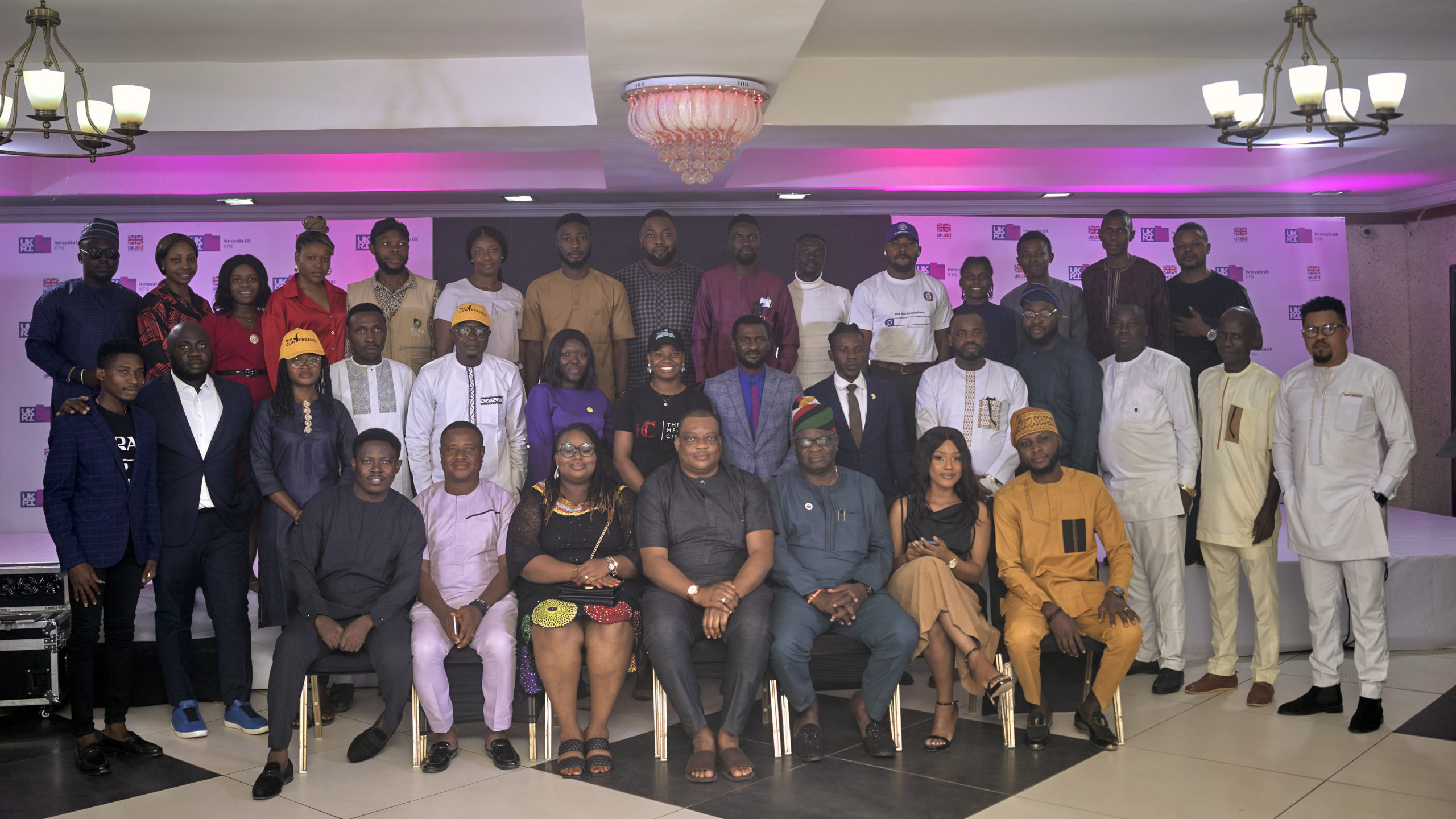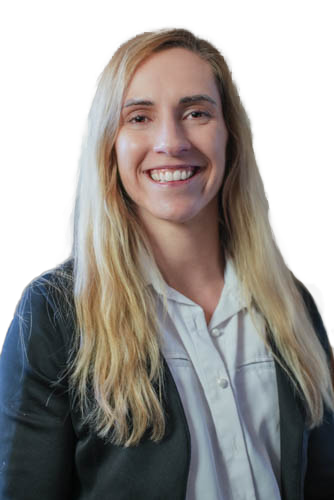Innovation Champions: Global Alliance Africa announces winners of the Sebenzisa Tembisa Waste Challenge!
Tembisa, South Africa, is catalysing innovation in working towards a future without waste. Four new pilot projects will soon be launched in the township, helping to create sustainable, circular economies for waste management in one of the country’s largest urban areas. This follows the successful close of the Sebenzisa Tembisa Challenge, an initiative of Innovate UK’s Global Alliance Africa project, that aims to bridge the gap between research, innovation and real-world impact.

Creating real change
As identified by communities in Tembisa, population growth, urbanisation, and industrialisation have driven consumption and intensified waste management challenges locally. These, coupled with concerns for the social and environmental impact of untreated waste, underline the necessity for decentralised, community-led solutions that aim not only to reduce waste but also to stimulate local economic development.
The main goal of this programme was to test whether research and academic organisations could partner with community-based companies, and take new technologies out of the laboratory and embed them into local communities, where they could create real change.
– Alana Kruger, Knowledge Transfer Manager, Innovate UK Global Alliance Africa, South Africa.
In response to these challenges, Global Alliance Africa launched the Sebenzisa Tembisa Challenge, in an effort to partner researchers with community-based organisations, with the aim of trialling new, innovative and bottom-up approaches to waste management in the area.
Global Alliance Africa’s Gauteng Innovation Advisory Group member, Buti Makama from the Innovation Hub, who has been leading this initiative and hosted programme events at their eKasi Labs, said:
For a long time, science and innovation have been seen to be for the exclusive few. The Innovate UK driven Tembisa Waste Challenge is proof that they are for the people and with the people. Communities can now use science-driven solutions to improve their daily lives.
Following a public call for proposals, four applicants have been chosen to receive £10,000 in grant funding to pilot their solutions.
Applying data to biofuel
Lathitha Biodiesel, collaborating with researchers at the University of Surrey and TelioGreen Platforms, aims to convert landfill waste into sustainable energy. By combining academic research and operational data through TelioGreen’s circular economy supply chain platform, they aim to increase the plant’s biodiesel production, optimise efficiency, cut costs, and divert more waste from Tembisa’s landfills.
Low-cost, recycled building materials
Durable and slow to decompose, the University of Johannesburg and Reyaxuma Projects propose repurposing plastic waste into low-cost building materials. This partnership will leverage local labour to collect and process various types of single-use plastics, reducing pollution and providing residents with affordable alternatives to traditional construction materials, along with economic opportunities.
A safer option for household cooking and heating
Stellenbosch University and the Green Business College aim to replace noxious paraffin with green ethanol made from food waste. By recruiting local residents to test the feasibility of an ethanol-based fuel supply, they one day plan to establish a commercial-scale ethanol plant in the area, reducing organic waste sent to landfill and providing a safer option for household cooking and heating.
Converting waste into compost in twenty-four hours
The Council for Scientific and Industrial Research, the Compostable Plastics Council of South Africa, and Clean City SA will collaborate to build, install, and test a machine that converts animal, human and organic commercial and industrial waste into compost within twenty-four hours. This concept, proven overseas, aims to provide farming and agricultural communities around Tembisa with a locally made and sustainable source of compost. Kruger added:
We were blown away by the exceptional quality and wealth of innovative applications we received for this Challenge. Better yet, the community’s engagement and eagerness to support our efforts has been nothing but inspirational. It has so far proved that innovation partnerships between academia and the local community are not just possible, but strongly encouraged. Our new partners are deeply passionate about making a positive impact in Tembisa, and we look forward to working with them over the next six months.
The Sebenzisa Tembisa Challenge forms part of Global Alliance Africa’s Place-Based Innovation (PBI) intervention. With the aim of enhancing local innovation systems, PBI works to strengthen the capacity and resilience of local innovation ecosystems through first working to better understand regional challenges, capabilities and potential for innovation, and then supporting action-orientated local innovation networks in areas of high potential.
Activities are designed and created in partnership with an Innovation Advisory Group, who all form a part of, or work within, the system of innovation in Gauteng, South Africa. Tembisa was selected as the focus for this initiative due to its significant waste management challenges as defined by its community and the potential for scalable solutions that could benefit similar communities countrywide.
About Innovate UK Global Alliance Africa
Global Alliance Africa is a six-year project funded by UK International Development through Innovate UK (GCRF) and the Foreign, Commonwealth and Development Office (FCDO).

Follow us for more project updates
Twitter @IUK_Global
Instagram @WeAreGlobalAlliance
Webpage iuk.ktn-uk.org/programme/africa
Related programmes

Place-Based Innovation
Much of the current support and investment in innovation in our partner countries of Nigeria, South Africa and Kenya has concentrated on particular urban centres. However, pan-African and many African national innovation strategies cite regional self-sufficiency and resilience as a top priority.

Global Alliance Africa
This FCDO funded project aims to build stronger equitable UK-African partnerships to maximise the creation of inclusive market access, funding and investment opportunities, and collaborative innovation between the UK, Nigeria, South Africa and Kenya.


